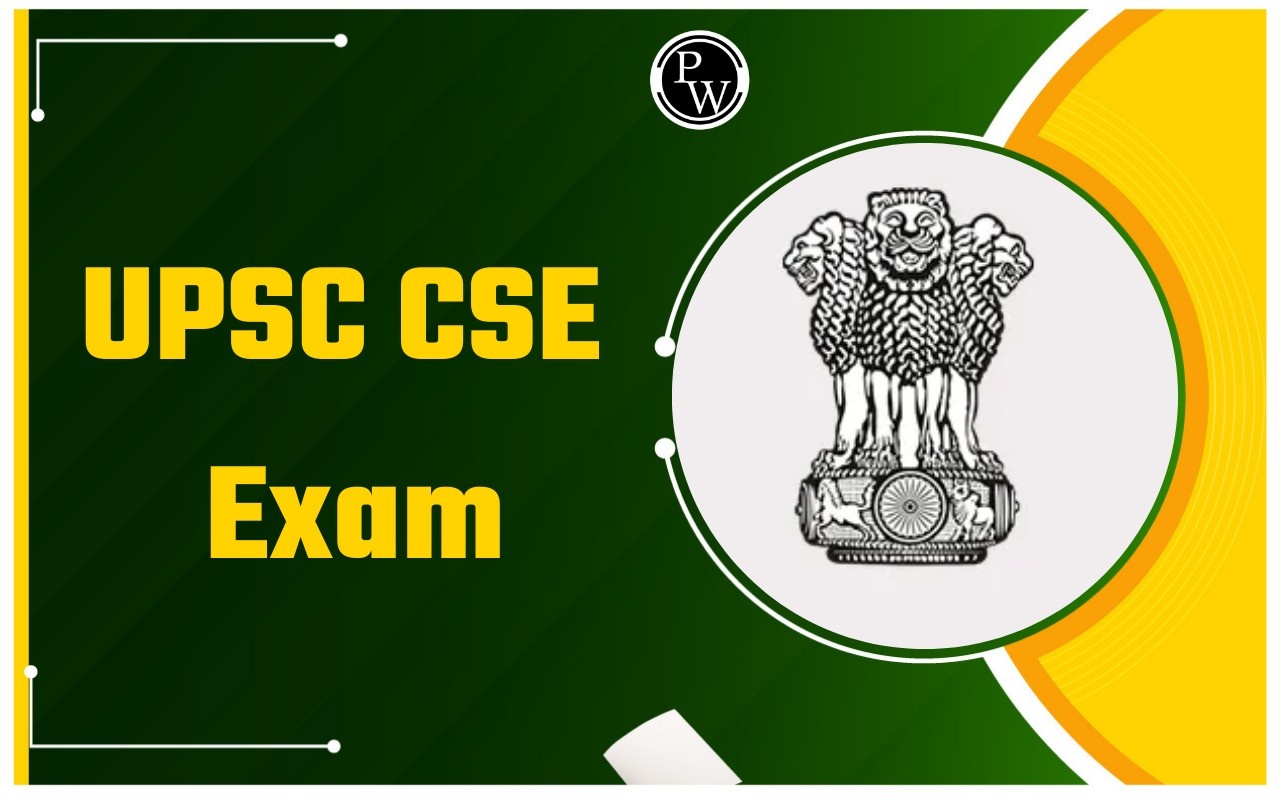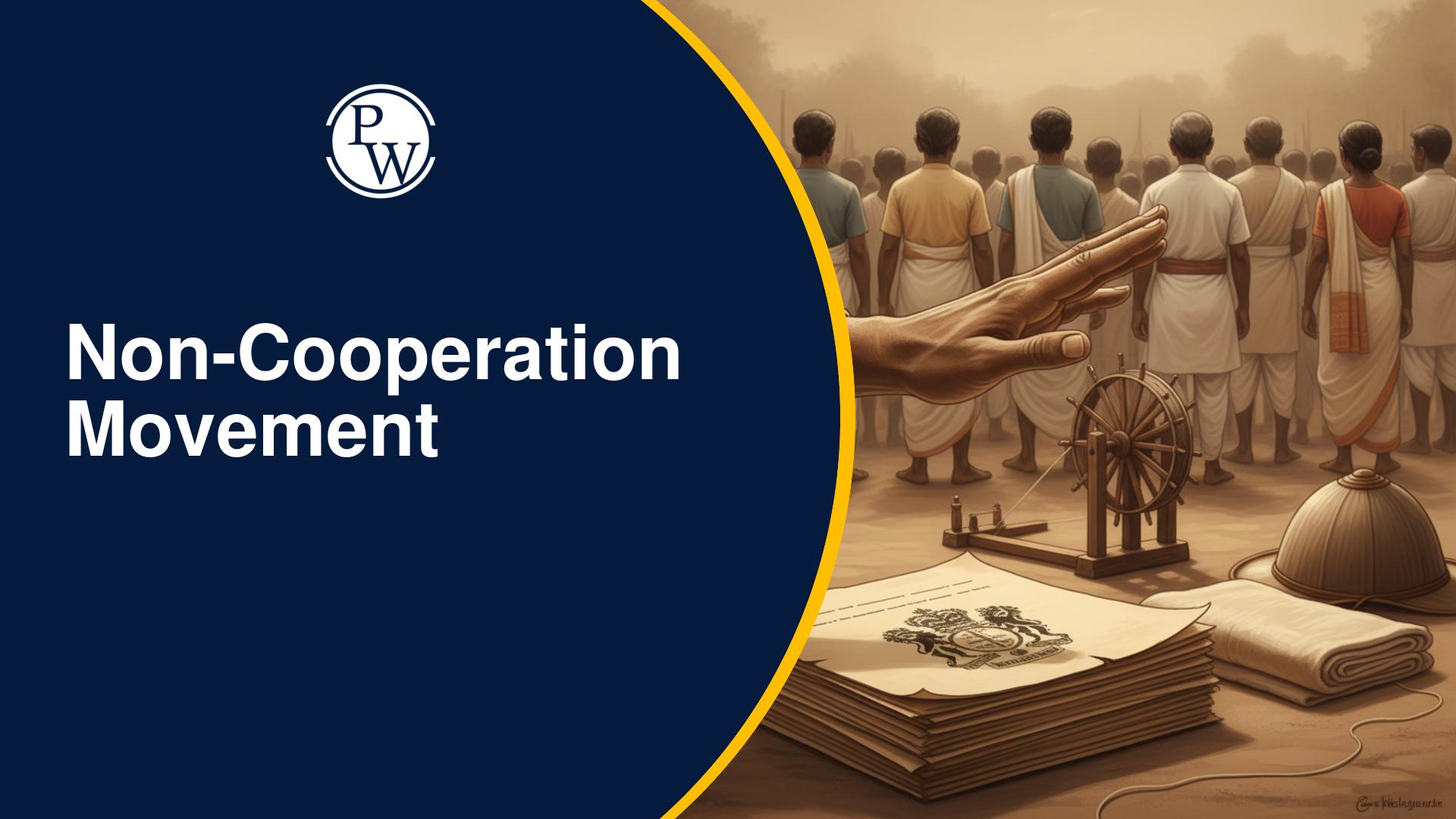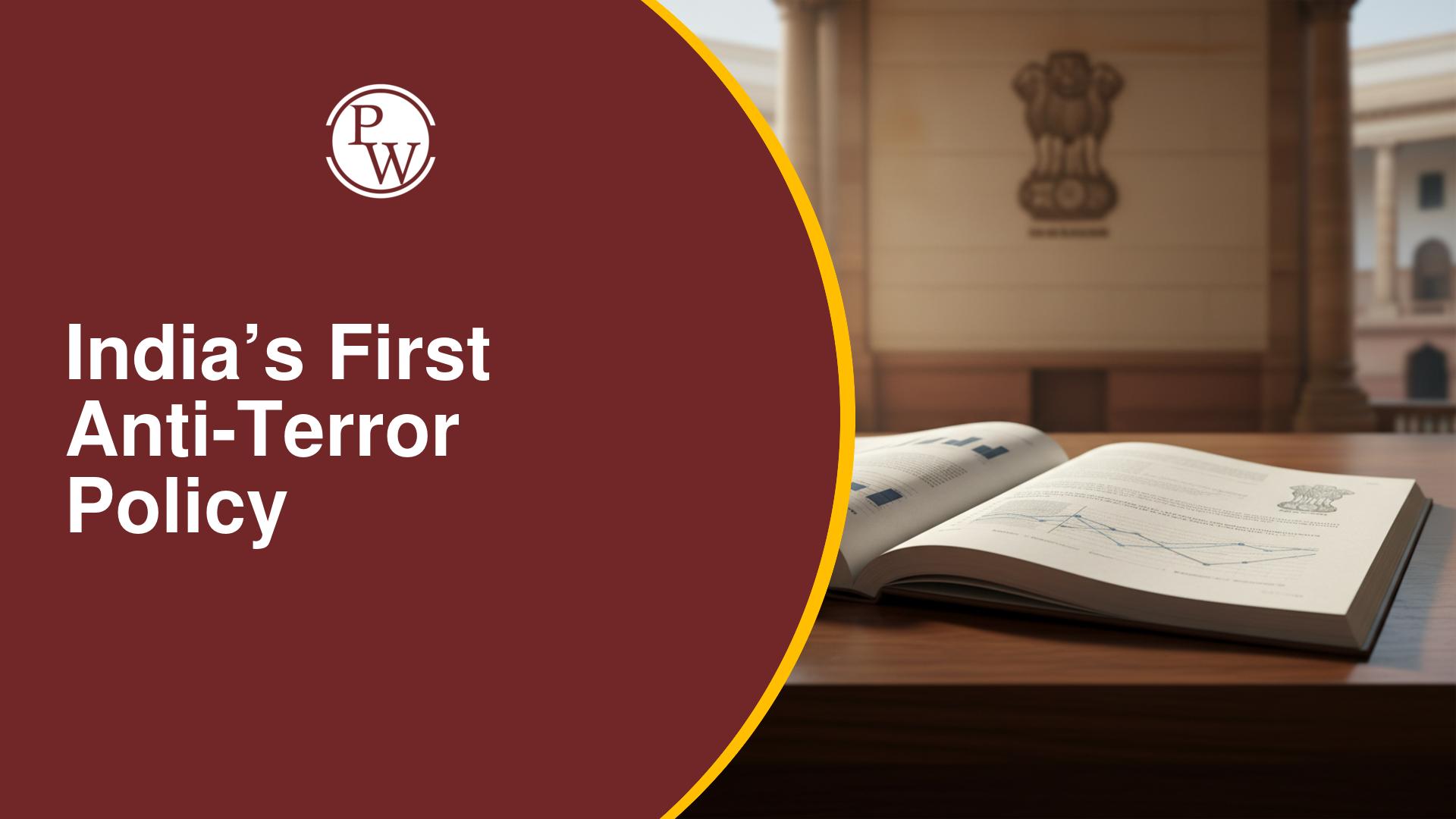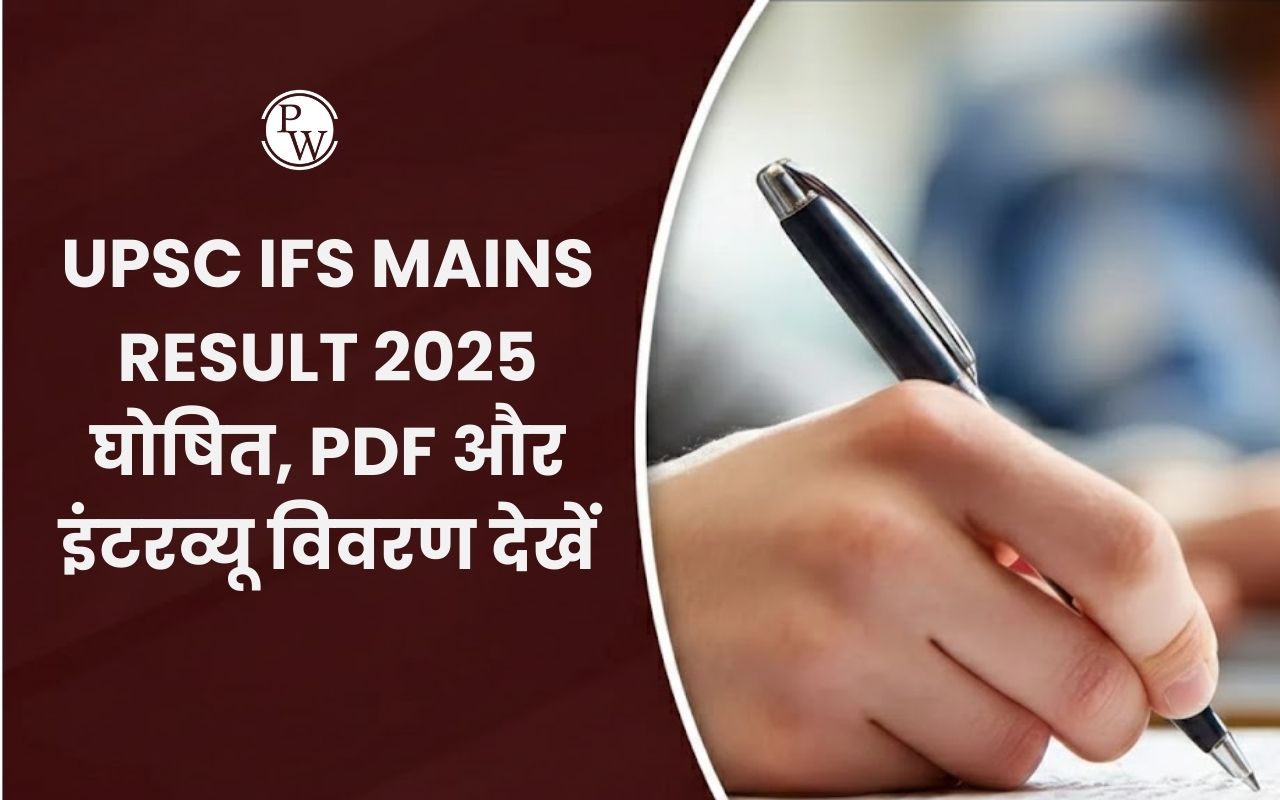
UPSC Electrical Engineering Optional syllabus is divided into two papers worth 500 marks. It emphasizes grasping fundamental concepts and utilizing them in domains like Analog and Digital Electronics, Power Systems, Microprocessors, Power System Protection, Measurement, and Instrumentation. The Electrical Engineering Optional is a highly specialized subject offered in the UPSC Civil Services Mains exam for candidates with a strong technical background. Read on for UPSC Electrical Engineering Optional syllabus, booklist, and more!
UPSC Electrical Engineering Optional Syllabus 2025
UPSC Electrical Engineering Optional Syllabus covers a wide range of topics such as circuit theory, control systems, power electronics, electrical machines, and digital systems. This optional is best suited for candidates with an academic or professional foundation in the subject.
UPSC Electrical Engineering Optional Syllabus for Paper I
The table below contains the complete syllabus of Electrical Engineering Optional Paper I:
| Topics | Sub-Topics |
|
|
|
|
|
|
|
|
|
|
|
|
|
|
|
|
|
|
UPSC Electrical Engineering Optional Syllabus for Paper II
The table below contains the complete syllabus of Electrical Engineering Optional Paper II:| Topic | Sub-Topics |
|
|
|
|
|
|
|
|
|
|
|
|
Benefits of Choosing Electrical Engineering Optional in UPSC Exam
Choosing electrical engineering as an optional subject in the UPSC (Union Public Service Commission) examination can offer several benefits:- Familiarity and Interest: If you have a background in electrical engineering or a strong interest in the subject, choosing it as an optional can make your preparation more enjoyable and manageable.
- Scoring Potential: Electrical engineering is considered a technical subject, and typically, technical subjects have more objective answers compared to humanities subjects. This can make scoring relatively easier as answers are often more straightforward and less subjective.
- Overlap with General Studies: Many topics in electrical engineering overlap with the general studies papers of the UPSC syllabus, especially in the fields of science and technology, economy, and infrastructure development. This overlap can provide you with an advantage in comprehending and answering questions.
- Availability of Study Material: There is a plethora of study material available for electrical engineering, both offline and online. This makes it easier for aspirants to access resources for preparation.
- Analytical Skills Development: Electrical engineering requires analytical thinking and problem-solving skills. Preparing for this optional subject can enhance your analytical abilities, which are crucial for all stages of the UPSC examination.
- Technical Understanding: As an electrical engineer, you'll have a better understanding of various technical aspects related to infrastructure development, renewable energy, power systems, and telecommunications.
UPSC Electrical Engineering Optional PYQs
The table below contains the links to the Previous Year Question papers I and II of Electrical Engineering Optional in UPSC:| Electrical Engineering Optional Paper 2024 | |
| Electrical Engineering Optional Paper I | Electrical Engineering Optional Paper II |
| Electrical Engineering Optional Paper 2023 | |
| Electrical Engineering Optional Paper I | Electrical Engineering Optional Paper II |
| Electrical Engineering Optional Paper 2022 | |
| Electrical Engineering Optional Paper I | Electrical Engineering Optional Paper II |
| Electrical Engineering Optional Paper 2021 | |
| Electrical Engineering Optional Paper I | Electrical Engineering Optional Paper II |
| Electrical Engineering Optional Paper 2020 | |
| Electrical Engineering Optional Paper I | Electrical Engineering Optional Paper II |
Recommended Books for Electrical Engineering Optional
To assist you in getting ready, we've compiled a selection of crucial books for the Electrical Engineering optional subject. These texts come highly recommended by experts and those who have succeeded in the field, encompassing the entire syllabus comprehensively.| S. No. | Book Title | Author(s) |
| 1 | Electromagnetic Fields & Waves | Kd Prasad |
| 2 | Energy Conversion | Ashfaq Hussain |
| 3 | Circuit Theory: Analysis and Synthesis | A. Chakrabarti |
| 4 | Signals and Systems | Alan V. Oppenheim, Alan V. Willsky, S. Hamid Nawab |
| 5 | Physics of Semiconductor Devices | Simon Sze |
| 6 | Analog Electronics | J.B. Gupta |
| 7 | Digital Logic and Computer Design | M. Morris Mano |
| 8 | Principles of Electronics | V .K. Mehta |
| 9 | Radio Engineering | G.K. Mithal |
| 10 | Circuit Analysis | Gupta |
| 11 | Electrical Technology | Thareja |
| 12 | Automatic Control System | Benjamin C. Kuo |
| 13 | Elements of Engineering Electromagnetics | Nannapaneni Rao |
| 14 | Electromagnetic Waves and Field | R.N. Singh |
| 15 | Control Systems Engineering | Nagrath Gopal |
| 16 | Semiconductor | Nag Choudhary |
| 17 | Integrated Circuits | D. Roy Choudhary |
| 18 | Network Analysis | Valkenburg |
| 19 | Basic Current Analysis | Murthy |
| 20 | Electromagnetic Waves and Radiating System | Jordan & Balmain |
| 21 | Modern Central Engineering | Katsuhiko Ogata |
| 22 | Microprocessors and Microcomputers | R. S Gaonkar |
| 23 | Topics in Communication Theory | David Middleton |
UPSC Electrical Engineering Optional Toppers
The table below contains the list of toppers in Electrical Engineering Optional paper in UPSC Mains:| Name | Year | Rank |
| Rishi Raj | 2017 | 27 |
| Rushikesh Reddy | 2017 | 374 |
| Rahul Gupta | 2016 | 20 |
| Surabhi Gautam | 2016 | 50 |
| Ashish Kumar | 2014 | 9 |
| Mayank Agrawal | 2012 | 67 |
| Prakash Rajpurohit | 2009 | 2 |
| Mutyalaraju Revu | 2006 | 1 |
UPSC Electrical Engineering Optional Preparation Strategies
Preparing for the UPSC Electrical Engineering Syllabus may present a formidable challenge, but with effective planning and strategy, one can excel in their preparations:- Understand the syllabus thoroughly: Break it down into manageable sections and focus only on what's mentioned in the official UPSC syllabus to stay efficient.
- Choose standard reference books: Stick to 1–2 trusted textbooks per subject (like Bimbhra, Hayt, Ogata) to avoid confusion and deepen your understanding.
- Focus on conceptual clarity: Build a strong foundation by understanding the "why" behind every theory, formula, and derivation.
- Practice numericals regularly: Solve problems daily to master accuracy, improve speed, and learn how to structure solutions step by step.
- Solve previous years’ question papers: Analyze trends, identify high-weightage topics, and simulate real exam conditions during practice.
- Prepare short notes and formula sheets: Summarize each topic into quick-reference sheets for efficient revision during the final weeks.
- Revise systematically and frequently: Schedule multiple revisions, starting from conceptual summaries to formulas and PYQs, to reinforce memory.
- Focus on answer presentation: Use diagrams, graphs, and clear step-wise solutions to make your answers examiner-friendly and score-worthy.
UPSC Electrical Engineering Optional Syllabus FAQs
How many papers are there in the Electrical Engineering optional?
Can non-electrical graduates choose UPSC Electrical Engineering Optional?
Are numerical questions asked in the UPSC EE optional?
Who is the topper of UPSC electrical engineering?










